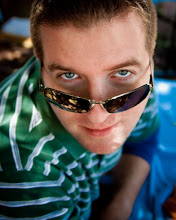Future Padre - Akinori Iwamura (?)
Akinori Iwamura – Iwamura is the hardest player to profile. We just don’t know as much about Akinori as we do about players who are already playing Major League Baseball.
Let’s look at some statistics.
1999: .304/.416/.631 with 24 2B, 2 3B, 42 HR, 93/99 BB/SO
2000: .316/.438/.654 with 32 2B, 1 3B, 42 HR, 106/108 BB/SO
2001: .333/.463/.617 with 23 2B, 3 3B, 36 HR, 120/96 BB/SO
2002: .334/.463/.692 with 27 2B, 1 3B, 50 HR, 114/104 BB/SO
2003: .287/.353/.435 with 42 2B, 1 3B, 16 HR, 63/86 BB/SO
2004: .298/.390/.522 with 34 2B, 2 3B, 31 HR, 88/103 BB/SO
2005: .305/.367/.496 with 45 2B, 3 3B, 23 HR, 63/78 BB/SO
2006: .302/.393/.494 with 9 2B, 0 3B, 8 HR, 27/23 BB/SO
As you can see we’ve got some VERY nice power numbers, especially up until 2003. At that point we had a paradigm shift. The player we’re looking at is not Akinori Iwamura, it’s Hideki Matsui.
As a Japanese player Matsui hit .304/.413/.582. As a Yankee he has hit .287/.372/.485.
Now let’s look at some more numbers (the on-base percentage and slugging percentages are approximations):
.277/.366/.430 – nine years of Japanese baseball, 1100 games and 4000 at-bats…
…and…
.281/.331/.399 – five years of MLB, roughly 450 games and less than 1000 at-bats for So Taguchi.
Now let’s look at Akinori’s stats.
1999: .294/.341/.500 with 11 2B, 4 3B, 11 HR, and 18/46 BB/SO
2000: .278/.342/.472 with 13 2B, 9 3B, 18 HR, and 39/106 BB/SO
2001: .287/.342/.472 with 24 2B, 4 3B, 18 HR, and 32/111 BB/SO
2002: .320/.390/.531 with 35 2B, 2 3B, 23 HR, and 58/114 BB/SO
2003: .263/.328/.461 with 6 2B, 2 3B, 12 HR, and 22/55 BB/SO (in 60 games)
2004: .300/.383/.583 with 19 2B, 0 3B, 44 HR, and 70/173 BB/SO
2005: .319/.388/.555 with 31 2B, 4 3B, 30 HR, and 63/146 BB/SO
2006: .311/.389/.544 with 27 2B, 2 3B, 32 HR, and 70/128 BB/SO
Iwamura doesn’t have anywhere near Matsui’s power; either in Japan or once he plays in the Majors. But that doesn’t mean isn’t valuable. He certainly has more speed than Matsui displayed. That athleticism prompted Iwamura to tell potential MLB suitors that in addition to third base, he is capable and willing to play second base and centerfield. Iwamura, an excellent defender, has won five Japanese Gold Gloves at 3B.
He still projects as an above-average hitter (more-so if he’s playing 2B or CF). Looking at Taguchi and Matsui may shed light on what kind of hitter Iwamura will be in the Majors, but looking at those players could actually cloud our judgment. Iwamura, a left-handed hitter, could actually have 25 HR power, but more likely he’ll hit 17-22 with quite a few doubles. His strikeout-rate has fallen the last two years (from 173 to 146 to 128 while he walked 70, 63, and 70 times the last three years. His strikeouts will probably spike his first year as he adjusts to MLB pitching.
I would expect (“guess” is probably a better word) a first-year around .260/.320/.440 with additional years of .280/.360/.480…
Now for the sticky part, what will Iwamura cost? Iwamura is not a free agent. Before losing Iwamura to U.S. baseball and having nothing to show for it, his Japanese team will “post” him allowing MLB teams to bid on his negotiating rights. The winning bid will have exclusive negotiating rights. Iwamura will probably sign a three-year contract worth $12-5 million but his posting team will probably get that much or more for its fee.


<< Home